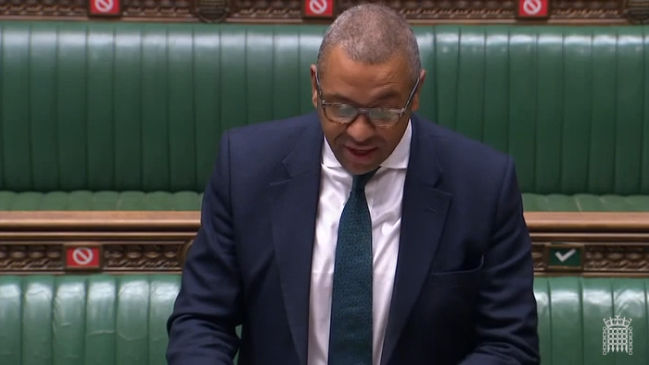James Cleverly responds on behalf of the Government to an Urgent Question in the House of Commons.

Sir Peter Bottomley (Worthing West) (Con) (Urgent Question)
To ask the Foreign Secretary if he will make a statement on whether he will use the UK’s constructive dialogue with the Government of Bahrain publicly to raise the cases of two prisoners who have been sentenced to death following torture, and who face a hearing this Monday when their death sentences may be confirmed.
The Minister for the Middle East and North Africa (James Cleverly)
The UK and Bahrain continue to have a close and important relationship. We benefit from an ongoing, open and genuine dialogue in which we work together on mutually beneficial issues while also raising points of significant difference with one another.
It is because of this long-standing partnership that we are able to have candid conversations about matters of importance to the UK—in particular, our human rights concerns. Our relationship allows us to raise sensitive and difficult issues, both privately and publicly, in a constructive manner in order to uphold our moral responsibility on human rights issues. We have raised and will continue to raise the cases both of Mohammed Ramadhan and Hussain Moosa at senior levels with the Government of Bahrain.
On 8 January, British embassy Manama officials attended the final session of the Court of Appeal for the retrial of the two men mentioned. Both individuals were convicted of terrorist charges and given the death sentence again. On 8 January, the former Minister for the Middle East and North Africa, my right hon. Friend the Member for South West Wiltshire (Dr Murrison), publicly stated our deep concern that death sentences were again handed out, and the UK’s position has not changed on this matter. We continue to actively monitor these two cases as they are taken to the court of cassation for final review.
The UK’s position on the use of the death penalty is long-standing and unequivocal: we oppose its use in all circumstances and in all countries as a matter of principle. The Government of Bahrain are fully aware of our view. This was made explicitly clear by the former Minister to a senior Bahraini counterpart last year. It was then reinforced by my noble friend Lord Ahmad in the other place, who issued a public statement expressing the UK’s opposition to the use of the death penalty, in response to actions taken in Bahrain.
I can assure the House that our efforts to raise these cases, and also the broader issues of the use of capital punishment, with the Bahraini authorities will continue. Bahrain is a Foreign and Commonwealth Office human rights priority country, in part due to its policy surrounding the death penalty. We continue to monitor developments on all matters that relate to human rights within the country. We remain absolutely committed to the promotion of universal freedoms and upholding human rights globally. That has been made clear only this week with the introduction of the UK’s first autonomous human rights sanctions regime.
Sir Peter Bottomley
The House will be grateful to the Minister.
I want to make it plain that the first constituency case I took was of someone who I thought had been wrongly convicted in this country, and it took five years to establish that. I am working on two long-term cases in the United States of America.
Bahrain is important to us politically, diplomatically and militarily, and we hope that it is a mutual relationship. We know that there are times when Bahrain, as a sovereign country, has paid attention to outside prompting, and we hope, with respect, that it will listen to what is said here, what was said in another place yesterday, and what was said in the three debates that have taken place in Parliament during the past year or so.
Can I ask that the views of Parliament are put to the Bahrain authorities, with our respectful greetings, and say that if either the court of cassation on Monday or a sovereign intervention would make a difference, that would be noticed and appreciated, and would affect the way Bahrain is seen? I do not need to say what would happen if that does not happen.
I wish these men well. I wish Bahrain well. I hope that the work by this House, by Amnesty International, by Reprieve and by Human Rights Watch will get the proper attention it deserves.
James Cleverly
I know that the Bahrainis do take seriously the views of the United Kingdom and this House. As yet, we do not know what the outcome of the Court of Cassation will be. If the death penalty is handed down again, I can assure the House that our opposition to the death penalty will be restated, at both official and ministerial level, to the Government of Bahrain.
